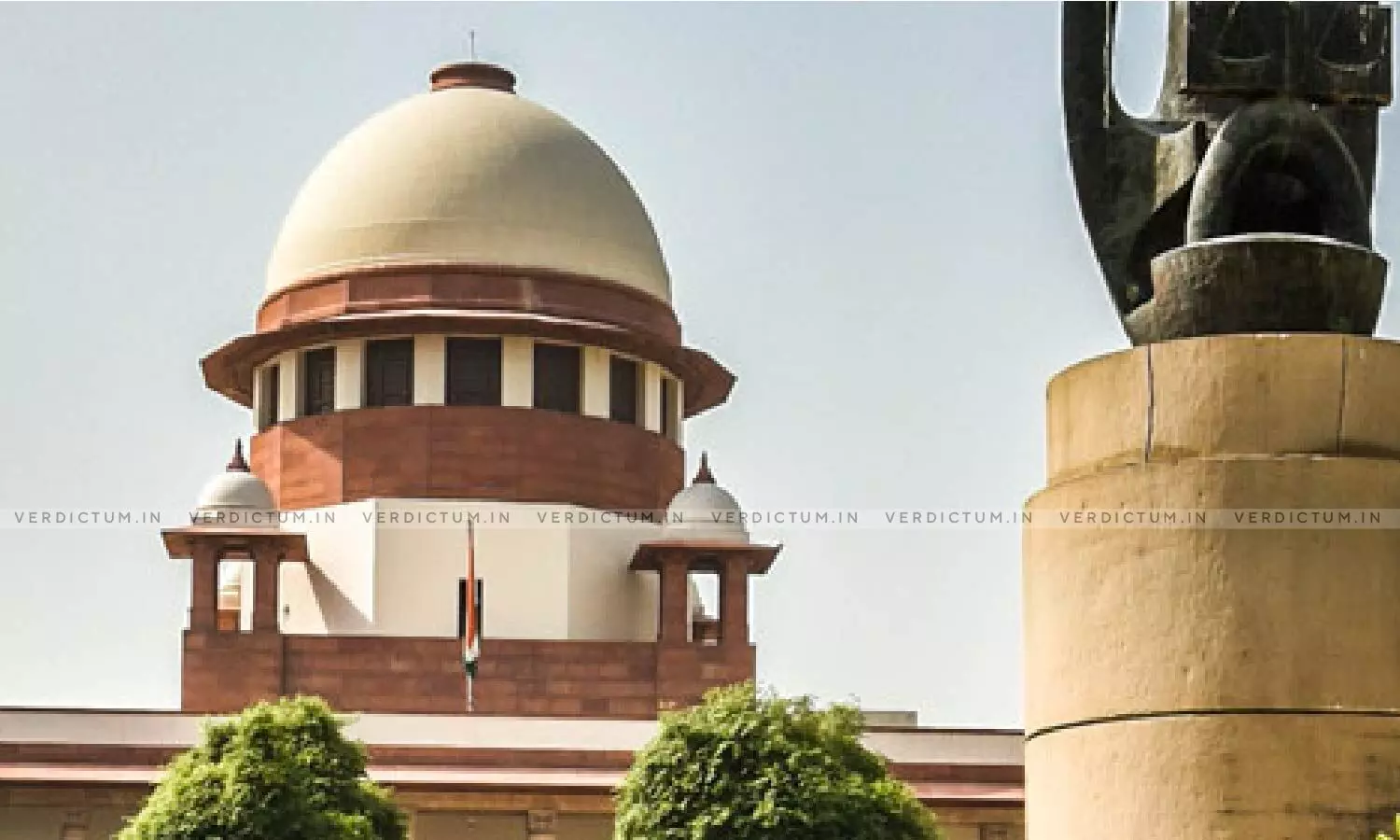
Insincere Apology Cannot Be Accepted: Supreme Court Upholds Conviction Of Advocate For Contempt
 |
|The Supreme Court dismissed the appeal of an advocate convicted for contempt under the Contempt of Courts Act, 1971 (Act).
The Court noted that an apology should demonstrate genuine remorse for the contemptuous acts and must not be employed as a tool to absolve the guilty of the offence.
The Court that there is a necessity to uphold the honour and standing of judicial officers and shield them from intentional, defamatory, and baseless accusations
The Bench comprising Justice Vikram Nath and Justice Pamidighantam Sri Narasimha observed, “an apology must evidence remorse with respect to the contemptuous acts and is not to be used as a weapon to purge the guilty of their offence. Further, an apology lacking in sincerity and not evidencing contriteness, cannot be accepted”.
Advocate Kanhaiya Singhal appeared for the Respondent.
The Criminal Appeal challenged the order of the High Court convicting the Appellant under the Contempt of Courts Act, 1971 (Act), through suo motu contempt jurisdiction. Key incidents include the appellant's threatening behaviour during a writ petition on August 17, 2006, leading to a contempt case.
Despite multiple notices, the appellant consistently failed to appear, prompting warrants and police involvement. The case revealed a pattern of contemptuous acts, such as filing transfer petitions without the petitioner's knowledge and making baseless allegations against judges in various proceedings. The High Court concluded that the appellant's behaviour constituted contempt.
The High Court held the Appellant guilty of criminal contempt, citing his use of undesirable language, making wild allegations, and threatening legal professionals. The court concluded that these intentional and malicious acts interfered with the administration of justice, lowering the court's dignity. On October 19, 2006, the High Court sentenced the appellant to three months of simple imprisonment and imposed a fine of Rs. 2000 in each contempt proceeding, forming the basis of the appellant's appeal.
In the initial assessment, the Apex Court observed that the impugned order was comprehensive, addressing all aspects of the matter. The High Court, while imposing the penalty, referenced a Supreme Court decision in the case of M.B. Sanghi, Advocate v High Court of Punjab & Haryana, [(1991) 3 SCC 600] emphasizing the need to safeguard judicial independence.
The Court emphasized “the need to maintain the dignity and reputation of judicial officers and to protect them from motivated, libellous and unfounded allegations”. Emphasizing the importance of upholding the Court's dignity, the Apex Court affirmed the High Court decision holding the appellant guilty of criminal contempt, imposing a three-month prison term and a fine of Rs. 2000 in each contempt proceeding.
Upon reviewing the appellant's conduct, the Supreme Court concurred with the High Court's emphasis on maintaining the dignity of judicial officers and protecting them from unfounded allegations. “We are also of the opinion that the High Court was correct in not accepting the apology tendered by the appellant since it was not bonafide and lacked in sincerity, apart from being belated and a mere ‘lip service”, the Apex Court noted.
The Supreme Court affirmed the finding of conviction, with a modification to the sentence. Considering the appellant's age and claimed medical ailments, the sentence was adjusted to imprisonment till the rising of the court.
Accordingly, the Court dismissed the Appeal.
Cause Title: Gulshan Bajwa v Registrar, High Court Of Delhi & Anr (2024 INSC 74)
Appearance:
Respondent: Prasanna, Vani Singhal, Ajay Kumar, Udit Bakshi, Anmol Sharma, Teeksh Singhal, Ujwal Ghai, Chirag M. Shroff, Ardhendumauli Kumar Prasad, Gopal Singh Chauhan, Deepak Goel, Advocates.